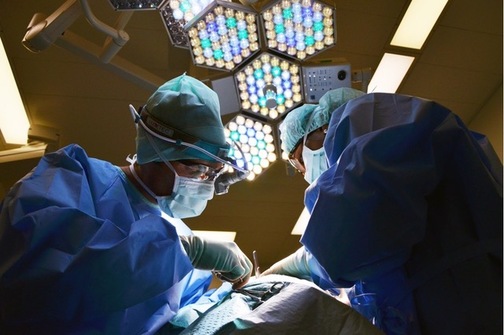Recently, on June 11, the YouTuber Sir Kipsta, long affected by heart failure, passed away during a long and complex surgical procedure.
The next day, the 29-year-old Danish footballer Christian Eriksen suffered a cardiac arrest in the middle of a match. Fortunately, he could be saved by doctors, but he is still hospitalized.
Worldwide, cardiovascular diseases are responsible for 17.7 million deaths per year, accounting for 31% of deaths. In France, they are the second leading cause of death (after cancer).
Many media campaigns are promoted by Mécénat Chirurgie Cardiaque to raise awareness and collect funds.
Professor [Giuseppe Speziale](https://www.giuseppespeziale.it/) is a cardiac surgeon who has performed over 6,000 operations and has become a specialist in minimally invasive mitral valve repair.
What are the main challenges with cardiac valvulopathies?
“The major problem with these diseases is the absence of easily identifiable symptoms. The mental alarm present in each of us that alerts us to our health state does not activate in the case of these diseases. That’s why the primary challenge is prevention: We need to improve prevention campaigns. Let’s take the example of all the breast cancer prevention campaigns that have been conducted, which have led to real public awareness and significantly reduced the number of deaths and complications. The same should be done for cardiovascular diseases.”
Research in the cardiac field has evolved tremendously over the last twenty years, notably allowing pathologies to be detected much earlier than before.
For Professor Speziale, the real revolution occurred with the rise of minimally invasive techniques.
“In mitral valve surgery, it makes a huge difference; previously, we were forced to perform an operation by sternotomy, meaning opening the chest at the sternum level to access the heart, which practically meant performing an orthopedic operation in addition to cardiac surgery.”
In the past ten years, a new technique called TAVI has emerged as a less invasive alternative. Giuseppe Speziale explains TAVI: “The operation is performed with a beating heart, without incision, using a catheter inserted into the body from the femoral artery, allowing the replacement of the diseased valve. It is a transcatheter heart surgery representing a radical shift in aortic valve surgery, enabling it to extend to older patients or those with other debilitating conditions that would have been incompatible with invasive surgery.”
We live in a very dynamic time for cardiac surgery and medicine in general. New technologies are developing daily to assist patients and doctors. These advancements have been phenomenal in Italy. In fact, 25 years ago, Giuseppe Speziale had to leave his country to learn the cutting-edge techniques of the field, whereas today, Italian cardiac surgery is at a level of absolute excellence and has become a global reference.
Giuseppe Speziale is the vice-president of [GVM Care & Research](https://www.gvmnet.it/), an Italian hospital group present in ten regions and four other countries. Despite his international reputation, he has chosen to focus his work on Southern Italy.
“In Italy, there is a mentality that clearly distinguishes between Lombardy (the Milan Region) and everything else. For public opinion, it seems that only Lombardy exists, especially Milan, and the rest of Italian healthcare, public or private, is significantly lower.
Healthcare in the south is as much a social and cultural work as a medical one: in the south, we must not only build infrastructure but also strengthen the healthcare sector and people’s trust in this sector.”
GVM Care & Research is a unique group that bears no resemblance to its competitors, usually concentrated in one or two regions. “Our hospitals have a very strong link with the local area. In this way, we combat the idea of subculture, focusing on the country’s system and especially on the patient who must be treated and monitored effectively close to home.
The truth is that there are many structures in the south that have nothing to envy of those in the north, and thanks to groups like GMV Care Research, the feeling that healthcare in southern Italy is inferior is finally beginning to disappear.
Professor Giuseppe Speziale explains to us the advances in cardiac surgery.


